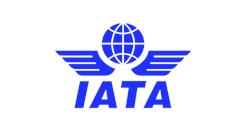Aviation maintenance personnel always welcome the opportunity to attend technical training classes to enhance their ability to maintain today’s complex aircraft. In addition, obtaining the latest tools and support equipment is also a high priority in the maintenance community.
These items are the foundation of our daily work and we feel very comfortable when functioning in this technical environment. As we move forward in our career, opportunities for increased responsibility occur and usually result in assuming a supervisory or management role. A highly talented technician on Friday is a crew leader on Monday or the highly effective crew leader becomes the shift supervisor overnight.
These opportunities are the culmination of years of hard work and recognition of that work by our peers, customers, and management. Quite often we find ourselves placed in a position of increased responsibility with little or no professional training to function effectively in our new role. Inadequate professional training is a major reason why excellent technical personnel, fearing failure, refuse promotional opportunities resulting in a loss of next generation leaders.
In order to be successful in our new role, we must have professional training that is useful and applicable at work and in our personal life. Sometimes this training is referred to as “soft skills training.” This training should address the interpersonal skills necessary to be a leader. I specifically use the term leader because in our new role we want to motivate and inspire those with whom we come in contact. However, regardless of the specific name, this type of training is mandatory to complement the individual’s technical skills.
It should be noted that increased responsibility does not necessarily mean having personnel reporting directly to you. It is safe to assume that increased responsibility will require interaction with additional personnel. In either case how you interact with people will determine the long-term success of your career. Not unlike technical skills, interpersonal skills are acquired by training and ongoing reinforcement of that training. Interpersonal skills training begins with our parent’s first admonishment to say please and thank you. From that point forward we have the lifetime challenge to treat others with respect and empathy.
Leadership skills should be part of both our professional and personal lives. How we interact with our fellow employees and customers should be no different from the treatment of our family members and neighbors. True leaders are consistent in their behavior and treat everyone with respect. Conventional wisdom dictates leaders should be cold and impersonal on the job, leaving your personal problems outside of the workplace. In a perfect world that separation may be possible; however, the reality of today’s fast-paced work environment requires an effective leader to have a blend of skills that can handle both technical and personal matters.
I am not advocating that the leader’s role should be that of a “babysitter.” I am recommending a deeper personal involvement beyond a few words a month passing on the hangar floor and an annual review. The outstanding leaders go out of their way to know about the people with whom they come in daily contact. I have never met an employee who did not feel good when their boss asked how their son or daughter did at the last soccer game. Everyone likes that recognition. It is this need for social interaction that makes us human beings. The larger the organization, the more difficult the task of staying connected; however, regardless of size we can maintain our interpersonal relationships if we are willing to work toward that goal every day.
Let’s look at a few key tools that effective leaders use in their professional and personal lives to ensure the people connection is never broken.
Communication
Sounds like a simple process, but if there is one area that causes more problems than any other, it is communication or better stated lack of good communication. It is a fact that verbal communication is approximately 30 percent efficient; therefore we must constantly work at improving our communication skills. Those who do not understand what is expected of them, have little, if any chance of achieving the desired results. A key part of communicating is listening. We must train ourselves to listen first and then respond.
Motivation
Money is not always the prime motivator. We need money to pay our bills and care for our self and family; however, studies have confirmed that money is only a partial component when it comes to motivating people. Respect, job satisfaction, and recognition for a job well done are equally if not more important than compensation. We all want fair compensation; however, how often have we said or heard a word of thanks or recognition for a job well done that would have trumped money.
Attitudes
Attitudes are contagious and we are judged by our attitude every day. The attitude of the leader sets the tone in the workplace. During times of economic stress and heavy workloads a positive attitude can be the difference between success and failure. Positive attitudes support teamwork, mutual support, and respect. Negative attitudes foster the opposite environment and can be one of the most destructive forces in the workplace. We have control over our attitude and we can choose to be positive or negative. History has proven a positive attitude will improve any situation at work or in our personal life.
Conflict resolution
Unfortunately there will be conflict as long as long as humans walk the earth. How we handle conflict and ultimately resolve conflict should be a primary concern. Conflict is not necessarily a bad thing and can be the genesis of new thoughts and ideas. Conflict between individuals or groups that becomes destructive must be addressed immediately. Addressing conflict does not mean avoidance as this only puts the problem off for a later time and generally heightens the resentment between parties. The leader’s task is to find a resolution to the conflict that results in both parties being treated equitably. Both sides will have to make concessions; however, if the resolution is viewed as fair the resolution will stand the test of time.
Assertiveness
Sometimes we get confused between aggressive and assertive behavior. A good leader acts in an assertive manner by respectfully stating his needs or the needs of the group. The assertive individual is also very willing to say no if appropriate. When everyone in an organization is assertive they are empowered to respectfully state their position. This type of environment discourages complacency and passive behavior. In the aviation maintenance business taking an assertive posture is a key safety factor and a critical element in preventing accidents.
I have touched on only a few of the numerous interpersonal tools that we need to employ for a pleasant and successful career. Utilize good interpersonal skills with the same regularity and efficiency as our technical tools. A good technician always maintains his tools in top-notch condition and treating our professional skill tools in the same manner is a winning combination.
John Rahilly has more than 37 years of aviation service experience. Based in North Carolina, he can be reached at [email protected].




